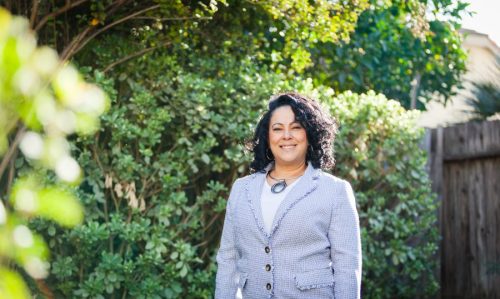ARC professor Elizabeth Rogers says pandemic has been especially difficult on ESL students
“I don’t think this pandemic will have a short end. I think this will change our education system permanently”
When it comes to the impact that the COVID-19 pandemic has had on the learning level of online teaching, American River College English as a Second Language Professor Elizabeth Rogers said, that it is necessary to the technology of teaching and learning to keep the learning process alive. (Photo courtesy of Elizabeth Rogers)
Elizabeth Rogers, an American River College adjunct English as a Second Language professor, says that her experience teaching ESL to immigrant students has been difficult during the pandemic.
“Maybe it [takes] a while for immigrants, including those who are Middle Eastern. to understand the American people’s culture,” she added.
It’s hard to understand American people’s nature in comparison with immigrants, including those who are Middle Eastern, she added.
Rogers’ teaching career began in 2009 in Brazil as a children’s English teacher. Since then, she has continued to love teaching English but found herself teaching adults more.
“I really like helping people adjust to a new life and a new language in this practical way,” Rogers said.
Rogers said that immigrant students usually suffer from culture shock at first but advises that they shouldn’t panic, and instead establish good relations and start by studying to become an expert at American life and the English language.
“Don’t stop from asking questions even if you appear heavy. If someone was unmannerly with you, try somebody else,” Rogers said. “Ask lots of questions about cultural norms and behavior and don’t assume that ‘different’ equals ‘wrong,’ or ‘worse.’
Rogers says that the surrounding circumstances of COVID-19 has forced the immigrant students to follow the protocol such as social distance, and mask.
“I would imagine that most people face the difficulty of language learning and then also understanding cultural differences,” Rogers said. “Now, both of these things are obviously made much more difficult because of a lack of human interaction.”
When it comes to the impact that the COVID-19 pandemic has had on the learning level of online teaching, Rogers said that it is necessary to the technology of teaching and learning to keep the learning process alive.
“I think they can be very successful learning online,” Rogers said. “[Students] also need to have a good online instructor.”
Rogers says cultural differences can make things challenging, too. For example, Middle Eastern students enjoy inviting their neighbors to have dinner in their houses to break the ice and establish a warm relationship, but there may be several reasons why an invitation is not returned.
“It’s not because your neighbor does not like you or appreciate the invitation [it’s because most people don’t have the same cultural habit of inviting neighbors into their house],” Rogers said. “If the person you invited is a professor, a boss, or someone who helps you in a professional setting, they might feel that it is not appropriate to have a personal friendship.”
Ultimately, Rogers says teaching forces her to not reflect on what she likes, but rather appear optimistic in front of her students when it comes to COVID-19 and the ongoing pandemic.
“I don’t think this pandemic will have a short end. I think this will change our education system permanently,” Rogers said.
Nobody knows when the COVID 19 pandemic will end. Maybe we have to be optimistic in the coming time because, in this semester, some classes return to being in person.












